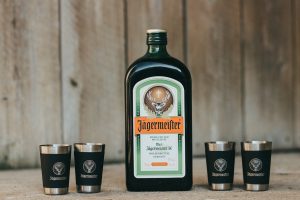ALCOHOL & WEIGHT LOSS: AVOIDING THE SMOKE AND MIRRORS OF THE FITNESS INDUSTRY
By Michael Vilen-Letts

With summer upon us this is likely a timely article, with most of us looking to be just a little leaner but also to enjoy the barbeques, beach holidays and days spent in the park with a beer or six.
So what’s the truth behind alcohol and building or maintaining an impressive physique? Firstly, some basics are in order. Per gram of each macronutrient they have differing calorie values. Carbohydrates and protein both have 4kcal/g, alcohol has 7kcal and fat has 9kcal/g. However, accounting for the Thermic Effect of Food (TEF) or more simply the energy required to break down and store each macronutrient the values can be corrected to 3.2kcal/g for protein, 3.7kcal/g for carbohydrate, 5.6kcal/g for alcohol and 9kcal/g for fat (Westerterp, 2004)
We all know that maintaining a calorie deficit is essential to achieving weight loss, as is maintaining an adequate protein intake 1.4-2.0g/kg bodyweight/day for the recreationally active or 2.0-3.1g/kg lean mass/day for the more serious athlete and/or those in a more severe calorie deficit or approaching a very lean status (for whom alcohol intake is not advised as the margin for error in achieving optimal gains is much smaller) (Jager et al., 2017).
So how do we factor alcohol into this equation? Easy, if you consume alcohol and remain in a calorie deficit, you WILL lose weight. No if’s, no but’s, you cannot break the laws of thermodynamics (no, the loophole in the 2nd law is not relevant). Does this mean you can have a dozen shots of tequila daily and remain slim? I certainly wouldn’t advise it and it definitely isn’t optimal never-mind the deleterious health effects of chronic excessive drinking but as long as the golden rule of a calorie deficit is upheld, you will lose weight.
So you ask, what would be some rough guidelines to balance your physique goals but still enjoy a few drinks? Alongside maintaining a calorie deficit and sufficient protein, replacing your carbohydrates and/or fats with alcohol is likely optimal. Protein having the benefits of aiding muscle retention, being the most satiating and the lowest in calories it is the most valuable macronutrient.
Some may argue that alcohol can negatively impact hormone levels conducive to positive adaptation, and although this is true, the effects have often been vastly exaggerated. For example, one study found that 30-40g alcohol (~3-4 beers worth) per day for 21 days noted a very minor decrease in testosterone of 6.8% for men and none for women (Sierksma et al., 2004).
If you’re really aiming to drop your testosterone levels for whatever reason, drinking yourself to the point of oblivion and require hospitalisation and you’re looking at a ~20% drop in testosterone (Frias et al., 2000). Specifically pertaining to performance and recovery from training, moderate intake of alcohol was not shown to lead to any differences in muscle damage (Barnes et al., 2011)). However, some studies do support a negative effect amongst particularly severe training sessions (300 maximal eccentric quadriceps contractions) followed by 1g/kg of alcohol in the form of 10 shots of vodka (Barnes et al., 2010). Although, this study is only practically relevant if you feel the need to train until you can’t walk and then proceed to drink yourself legless in quick succession, you know who you are.
Now with this newfound knowledge, drink responsibly or don’t, just stay under your calorie budget!
Photo by Andrea Tummons on Unsplash
About the author
As a graduate of Sport & Exercise Science from Loughborough University and a current student of Medicine at King’s College London I have gathered a vast array of knowledge of anatomy, physiology and nutrition amongst others that I can apply to the fields of sport performance and physique development. Formerly a national level swimmer and now a recreational martial artist with an ambition to compete in physique events in the future, I try to apply evidence-based strategies wherever possible to achieve my goals.

